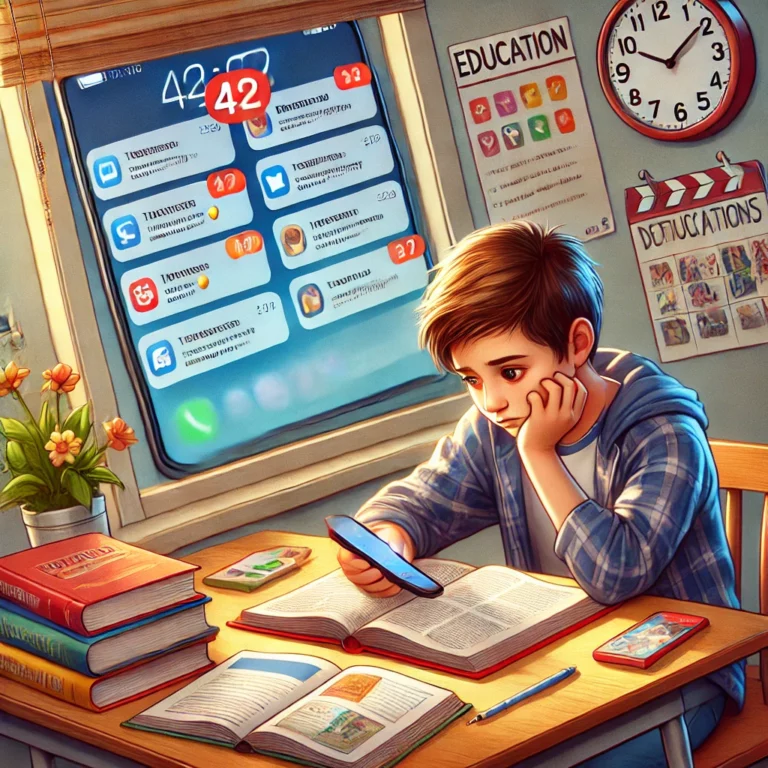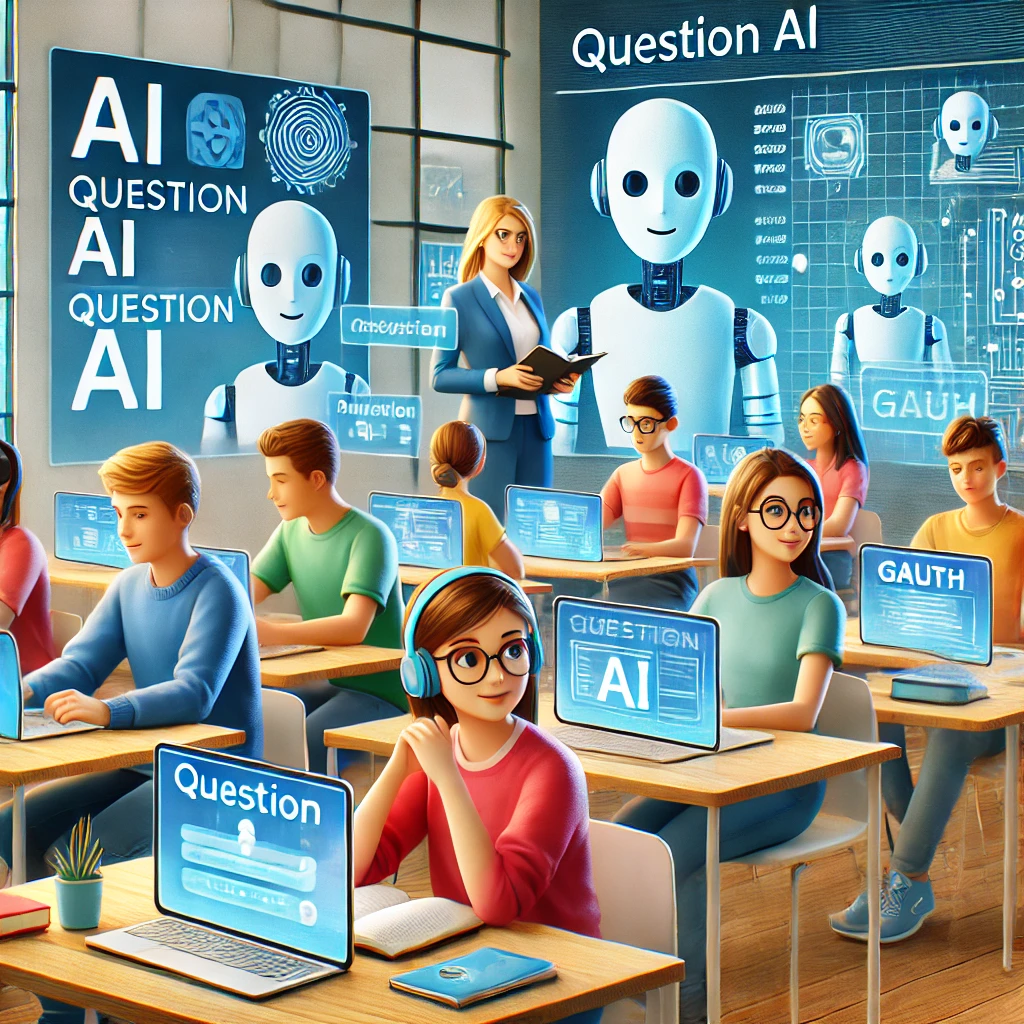Introduction
In today’s digital age, children are constantly surrounded by technology and distractions. Multitasking leads to shallower thinking and more time spent working, especially for kids who struggle with attention. This blog post delves into the effects of multitasking on children’s concentration, the challenges faced by kids with ADHD, and the importance of establishing distraction-free routines. By understanding these dynamics, parents and educators can better support children in developing effective study habits and improving their overall productivity.
We will explore scientific studies, expert opinions, and practical strategies to manage distractions and enhance focus. The discussion includes insights from the Child Mind Institute, neuropsychologists, and other experts in the field of mental health and learning disorders.
The Problem with Multitasking
Shallow Thinking and Reduced Productivity
Multitasking leads to shallower thinking and more time spent working, especially for kids who struggle with attention. When children attempt to juggle multiple tasks simultaneously, they are less likely to engage deeply with any single activity. This results in a superficial understanding of the material and increased time to complete assignments. Research indicates that the human brain is not designed for multitasking; instead, it switches rapidly between tasks, which impairs cognitive performance.
Neuropsychologists have found that multitasking can reduce the efficiency and effectiveness of learning. The constant switching between tasks prevents the brain from focusing on one task long enough to process information thoroughly. This is particularly detrimental for children with ADHD, who already face challenges with sustained attention and executive functions.
The Appeal of Phones and Social Media
Kids today are never far from their phones, even when doing homework, leading to distractions. Smartphones and social media apps are designed to capture and hold attention through immediate rewards and constant notifications. These digital distractions can significantly hinder a child’s ability to concentrate on their homework and other important tasks.
Phones and social media apps are designed to be easy to focus on and offer immediate rewards, making them appealing for kids. The instant gratification provided by these platforms can be addictive, drawing children away from more meaningful activities and reducing their capacity for deep thinking and learning.
The Challenges for Kids with ADHD
Executive Function Struggles
Multitasking during homework can be particularly difficult for kids with ADHD due to their struggles with executive functions. Executive functions are cognitive processes that enable individuals to plan, focus attention, remember instructions, and juggle multiple tasks successfully. Children with ADHD often have deficits in these areas, making it harder for them to switch between tasks without losing focus and productivity.
The Child Mind Institute emphasizes that these executive function challenges can exacerbate the negative effects of multitasking. For kids with ADHD, trying to handle multiple tasks at once can lead to frustration, incomplete work, and a decreased sense of accomplishment.
Cognitive Distortions About Multitasking Abilities
Kids with ADHD may have cognitive distortions about their multitasking abilities. They might believe they are proficient at handling several tasks at once, when in reality, their performance suffers. These cognitive distortions can lead to a cycle of poor productivity and self-esteem issues, as children struggle to meet their academic and personal goals.
Neuropsychologists recommend cognitive tests to assess the true impact of multitasking on a child’s performance. These tests can help identify specific areas where support is needed and guide interventions to improve focus and productivity.
Establishing Distraction-Free Homework Routines
Importance of a Distraction-Free Environment
Establishing a distraction-free homework routine is important for kids who struggle with attention. Creating a dedicated study space free from digital distractions can help children concentrate better and complete their tasks more efficiently. This involves setting clear boundaries around phone and screen use during homework time.
Removing distractions should improve the homework experience and leave more free time for kids. When children can focus fully on their assignments, they are likely to finish their work more quickly and accurately. This not only enhances their learning but also allows for more leisure time, contributing to a healthier work-life balance.
Strategies for Reducing Distractions
Several strategies can help reduce distractions and improve focus during homework. These include:
- Setting specific times for study and breaks: Structured schedules can help children stay on task and manage their time effectively.
- Using technology to block distractions: Apps and browser extensions like StayFocusd for Google Chrome or LeechBlock for Firefox can limit access to distracting websites during study time.
- Incorporating regular breaks: Short, frequent breaks can help maintain concentration and prevent burnout.
- Encouraging mindfulness practices: Techniques such as deep breathing and meditation can improve attention and reduce stress.
The Negative Impact of Multitasking
Cognitive and Performance Decline
Multitasking actually makes it harder to focus and leads to shallower thinking. The cognitive load imposed by switching between tasks can overwhelm the brain, resulting in lower quality work and increased errors. This is particularly problematic for tasks that require deep concentration and critical thinking.
Transitioning between tasks isn’t seamless and leads to a reduction in performance and productivity. Studies have shown that it can take several minutes to regain full focus after switching tasks, leading to significant losses in efficiency over time.
Impulsivity and ADHD
Kids with ADHD are often more impulsive, which can exacerbate the difficulties of multitasking. Impulsivity can lead to frequent task switching, as children may struggle to resist the temptation of checking their phones or engaging in other distractions. This impulsivity can further hinder their ability to complete tasks effectively.
Experts recommend strategies to manage impulsivity, such as setting clear rules for study time, using visual timers, and providing immediate, positive reinforcement for sustained attention.
The Importance of Unplugging
Developing Life Skills
Unplugging from distractions is a life skill that will become increasingly important as technology becomes more absorbing. In a world where digital distractions are ubiquitous, learning to disconnect and focus on one task at a time is crucial for success in both academic and professional settings.
Teaching children to manage their screen time and prioritize tasks can help them develop essential skills for the future. This involves educating them about the impacts of multitasking and encouraging healthy habits around technology use.
Long-Term Benefits
The long-term benefits of reducing multitasking and managing distractions extend beyond academic performance. Improved concentration and productivity can lead to better mental health, enhanced social skills, and greater overall well-being. By fostering these skills early, parents and educators can help children navigate the challenges of a digital world more effectively.
Mental health experts emphasize the importance of a balanced approach to technology use, combining the benefits of digital tools with the need for real-world interactions and activities. This balance is key to promoting healthy development and preventing the negative impacts of excessive screen time and multitasking.
Conclusion
The impact of multitasking on kids’ attention and productivity is significant, particularly for those with ADHD. While technology and digital devices offer many benefits, they also pose substantial challenges in terms of maintaining focus and achieving deep, meaningful learning. By understanding the effects of multitasking and implementing strategies to reduce distractions, parents and educators can help children develop better study habits and improve their overall productivity.
Establishing distraction-free routines, managing screen time, and fostering essential life skills are critical steps in supporting children in today’s digital age. By balancing the use of technology with the need for focus and real-world interactions, we can ensure that children are well-equipped to succeed academically and personally.



